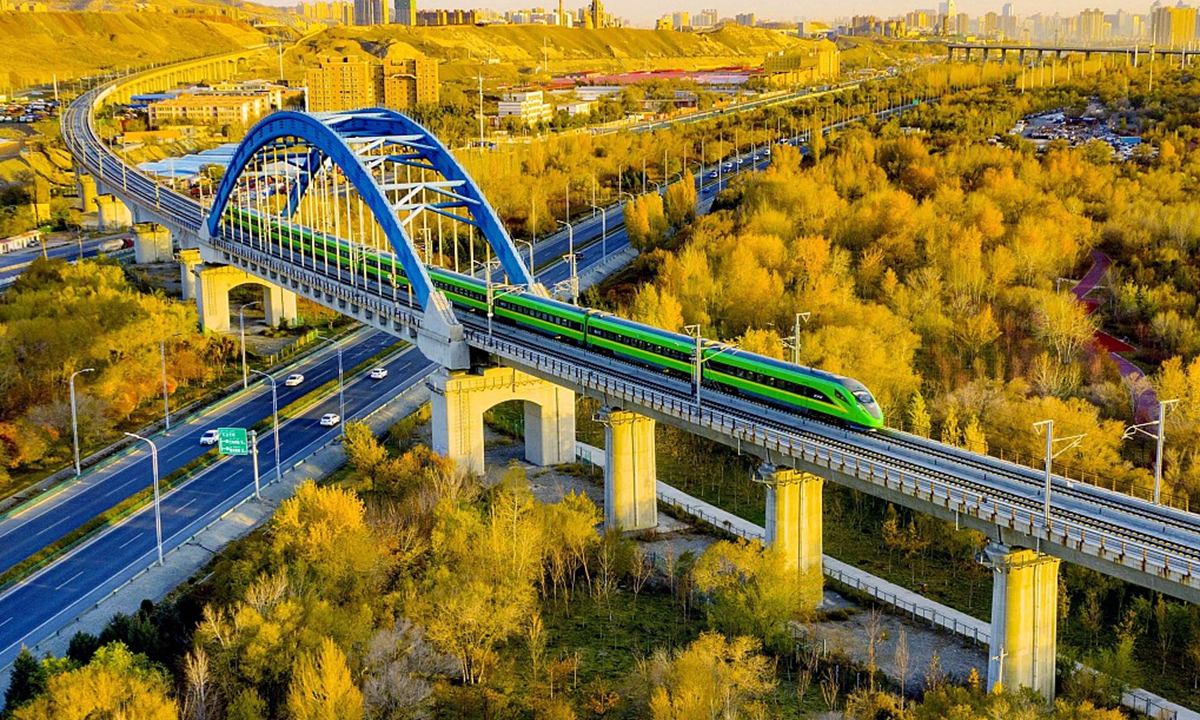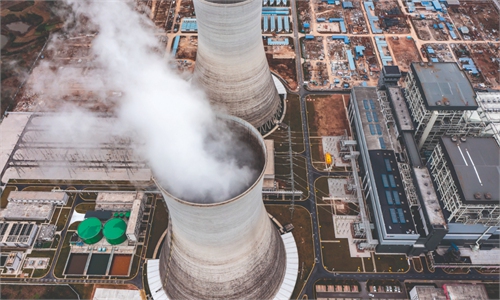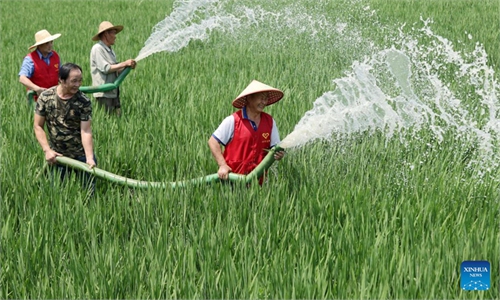China’s State Council rolls out 19 targeted measures to tackle various economic challenges
New policies target specific challenges, inject confidence: experts

GDP Photo:VCG
With the government funneling more targeted policy support into the weak links of the economy, a more solid rebound is on the horizon, observers said, betting on the Wednesday announcement to brighten the outlook for the Chinese economy. The measures were released after the Chinese A-share market saw sharp losses on Wednesday, as investors grapple with global economic uncertainties.
The Chinese economy has been in a recovery trend since June, but the foundation for the rebound is not yet solid, according to read-out of a State Council executive meeting on Wednesday, which was presided over by Premier Li Keqiang.
The meeting called for policy implementation in a timely and resolute manner, making use of available tools to solidify the basis of the recovery, while refraining from a flood of stimulus.
Among the 19 new policy measures was the addition of more than 300 billion yuan ($43.68 billion) in quotas for policy and development financial instruments, and a green light for central power generation firms, among others, to issue 200 billion yuan of bonds. Also on the list was the allocation of 10 billion yuan for farm equipment and materials. China will also allocate 10 billion yuan to help rice farmers cope with drought.
The policies also include the approval of a batch of new infrastructure projects and the rolling out of measures to support the development of privately run businesses and the platform economy.
The 19 follow-up measures focus on the most prominent growth challenges, experts said, citing a national push to ensure power supply for households and businesses and to strive for a successful autumn grain harvest in the wake of record heat waves and drought.
Xi Junyang, a professor at the Shanghai University of Finance and Economics, said that the latest announcement shows that the central government is further detailing and quantifying the support measures it rolled out earlier to stimulate economic growth, as well as launching new policies to cope with emerging economic challenges.
It also shows China's policy direction of lending support to the economy in a precise way, instead of lavishing general stimulus policies, he said.
As part of a full-fledged battle to stabilize the economy, the State Council in late May issued a sweeping set of 33 measures aimed at tackling specific challenges and keeping economic operations within in reasonable range.
The measures encapsulate six areas - fiscal support, monetary support, investment, consumption, food and energy security, and supply chain stability.
"The government is very cautious about the side effects of stimulus policies such as inflation or financial leveraging, which it has spent a lot of effort combating in the past several years. In the face of current economic pressure, it is inclined to use policies to remedy economic areas in need of support, such as areas hit with power crunches, the property market and so forth," Xi told the Global Times on Wednesday.
The Wednesday meeting also allowed for a city-tailored approach to using credit so as to underpin inelastic housing demand and homeowners eyeing a shift toward bigger and nicer homes.
According to Xi, the goal of letting cities set their own loan rules to support housing demand shows the inclination of policymakers to stimulate economic growth through support for the property market.
It also shows that the government is lending help to regions that are facing severe problems in the property market, like developers' capital shortfalls, unfinished buildings and so forth.
It is expected that many cities, especially third-tier or smaller cities, would adjust their policies to ease restrictions on home-buying, Xi said, but house policies are likely to remain mostly unchanged in large cities.
In another sign, the 300 billion yuan quota for policy financial tools is a signal that China will roll out more policy loans with low or no interest for non-commercial projects, experts said.
The government is likely to inject the money into areas related to people's livelihood, environmental protection or sectors in need of policy support, according to Xi.
The policy mix on the back of a raft of pro-growth moves is also expected to inject optimism into the capital market, which has gyrated amid domestic and overseas uncertainties.
Chinese shares posted a slide across the board on Wednesday, with the flagship Shanghai Composite Index shedding 1.86 percent and the tech-heavy ChiNext index losing 3.64 percent.
The broad losses, regardless of strong earnings of major listed firms, are seen as an indication of investors being on edge over the economy's growth prospects.
A typical example is CATL, the world's largest battery manufacturer, which opened higher in ChiNext trading on Wednesday after its second-quarter profit beat market estimates, but nonetheless continued a downward spiral throughout the day, losing 5.91 percent at the close.
Li Daxiao, chief economist at Shenzhen-based Yingda Securities, told the Global Times that as the 19 measures are targeted solutions for several sectors that have relatively large problems, such as the property market, there should be a relatively obvious impact on investor confidence and the capital market.
"The economy supports the stock market, and the newly launched policies show clear, pragmatic, targeted and substantial support for troubled economic sectors," Li said.



